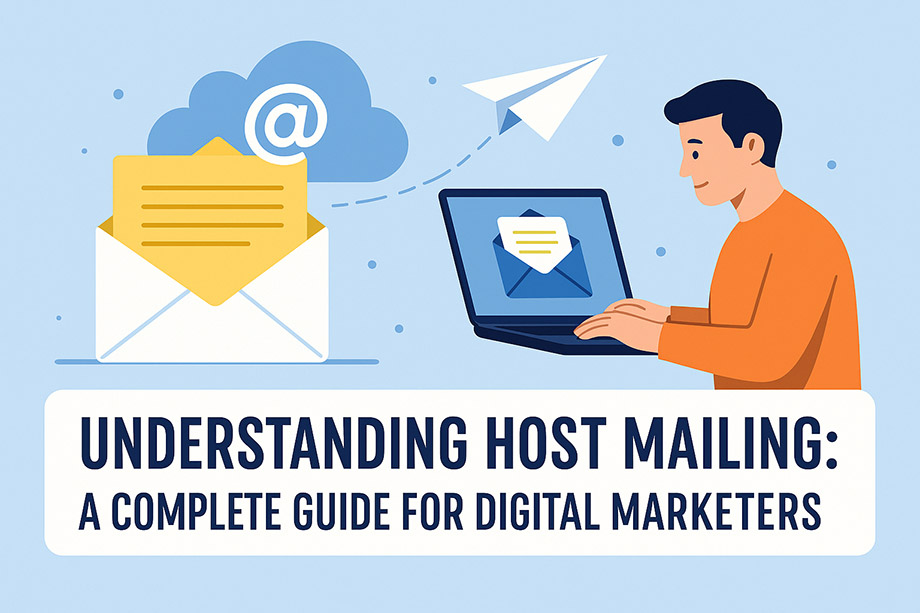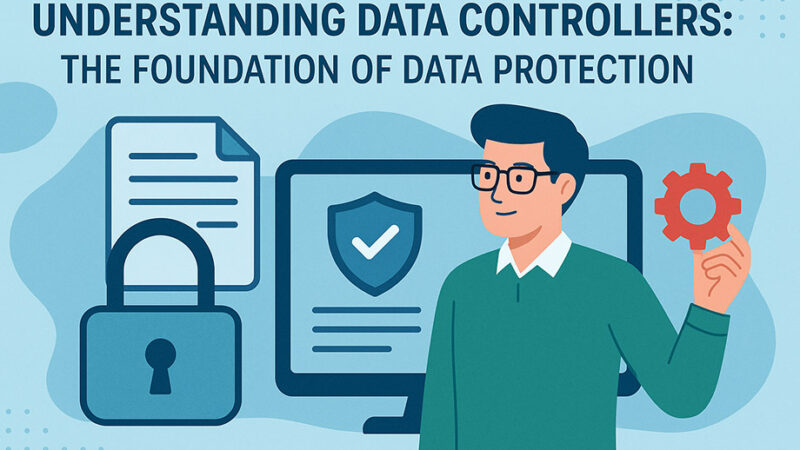Understanding Host Mailing: A Complete Guide for Digital Marketers

In the evolving landscape of digital marketing, businesses are constantly seeking innovative ways to reach their target audiences while maintaining compliance with data protection regulations. One strategy that has gained significant traction is host mailing – a marketing approach that allows companies to leverage established relationships while expanding their reach.
What is Host Mailing?
Host mailing is a marketing practice where a data controller (the “host”) includes third-party commercial messages within their own promotional communications to their existing customer base. Essentially, it’s the digital equivalent of allowing another business to place their advertisement in your newsletter or promotional email.
In this arrangement, the host organization maintains control over their customer data while providing a platform for partner businesses to reach a qualified, engaged audience. The third-party messages are seamlessly integrated into the host’s regular communications, creating a win-win scenario for all parties involved.
How Host Mailing Works
The process typically follows these key steps:
Partnership Formation: A business (the advertiser) partners with an organization that has an established customer database (the host). The host maintains full control and ownership of their customer data throughout the process.
Content Integration: The third-party commercial message is incorporated into the host’s existing promotional materials, such as newsletters, product announcements, or marketing emails. This integration ensures the message feels natural and relevant to the recipient.
Audience Targeting: The host can select specific segments of their audience that would be most receptive to the third-party message, ensuring better engagement rates and more relevant targeting.
Compliance Management: The host remains responsible for ensuring all communications comply with data protection regulations, as they maintain control over the customer data and communication channels.
Benefits of Host Mailing
For Host Organizations
Revenue Generation: Host mailing provides an additional revenue stream by monetizing existing customer relationships without compromising data security or customer trust.
Enhanced Value: By carefully selecting relevant third-party offers, hosts can provide additional value to their customers, potentially improving customer satisfaction and engagement.
Maintained Control: The host retains full control over their customer data, communication frequency, and message content, ensuring brand integrity is preserved.
For Advertiser Partners
Access to Quality Audiences: Advertisers gain access to engaged, qualified audiences that have already demonstrated trust in the host organization.
Improved Credibility: Messages delivered through trusted hosts often receive higher engagement rates due to the established relationship between the host and their customers.
Cost-Effective Reach: Host mailing can be more cost-effective than traditional advertising methods, particularly when targeting specific demographics or interests.
For Recipients
Relevant Content: When executed properly, host mailing delivers more relevant and valuable offers to recipients, as the host typically curates content that aligns with their audience’s interests.
Trusted Source: Recipients receive offers from organizations they already know and trust, reducing concerns about spam or unreliable vendors.
Best Practices for Host Mailing
Transparency and Disclosure
Always clearly identify when content is sponsored or provided by a third party. Recipients should understand the commercial nature of the message and the relationship between the host and advertiser.
Relevance and Quality Control
Carefully vet all third-party content to ensure it aligns with your brand values and provides genuine value to your audience. Poor-quality or irrelevant offers can damage your relationship with customers.
Frequency Management
Maintain a balanced approach to host mailing frequency. Too many third-party promotions can overwhelm recipients and potentially lead to unsubscribes or decreased engagement.
Data Protection Compliance
Ensure all host mailing activities comply with relevant data protection regulations such as GDPR, CCPA, or other applicable laws. The host organization typically bears responsibility for compliance since they control the customer data.
Legal and Compliance Considerations
Host mailing operates within a complex regulatory environment. Key considerations include:
Data Controller Responsibilities: The host organization typically remains the data controller and must ensure all processing activities are lawful and transparent.
Consent Requirements: Depending on jurisdiction, explicit consent may be required for including third-party commercial content in communications.
Opt-out Mechanisms: Recipients must have clear and easy methods to opt out of receiving third-party promotions while potentially maintaining their relationship with the host.
Privacy Notice Updates: Privacy policies may need updates to reflect the sharing of promotional space with third parties.
Measuring Success
Effective host mailing campaigns should be measured using relevant metrics:
- Open and click-through rates for integrated messages
- Conversion rates for third-party offers
- Customer satisfaction and feedback scores
- Revenue generated from host mailing partnerships
- List health metrics including unsubscribe rates
The Future of Host Mailing
As privacy regulations continue to evolve and third-party cookies phase out, host mailing represents a privacy-compliant way for businesses to reach new audiences. The strategy aligns with the growing emphasis on first-party data and relationship-based marketing.
Organizations that master host mailing can create sustainable revenue streams while providing value to partners and customers alike. The key lies in maintaining transparency, relevance, and respect for customer preferences.
Conclusion
Host mailing offers a sophisticated approach to digital marketing that benefits all parties involved when executed thoughtfully. By allowing trusted organizations to include relevant third-party messages in their communications, businesses can expand their reach while maintaining compliance with data protection regulations.
Success in host mailing requires careful attention to content quality, audience relevance, and regulatory compliance. Organizations considering this strategy should develop clear policies, establish quality control processes, and maintain open communication with their audience about commercial partnerships.
As the digital marketing landscape continues to evolve, host mailing stands out as a strategy that respects customer relationships while enabling business growth – making it an increasingly valuable tool in the modern marketer’s toolkit.





